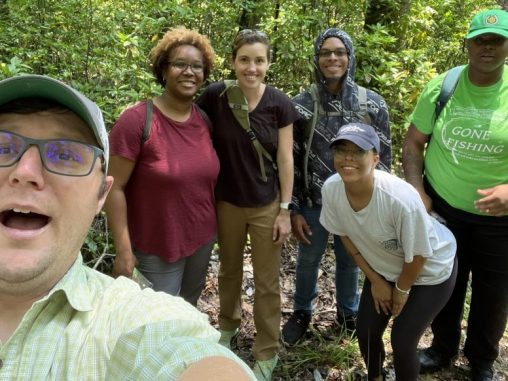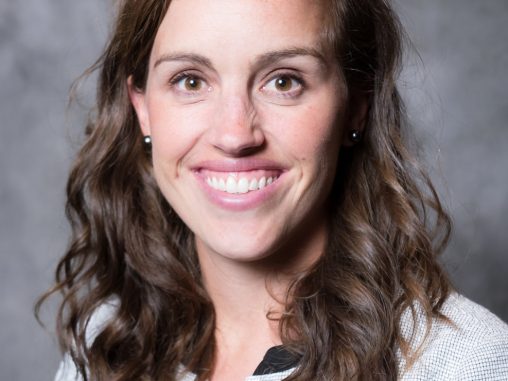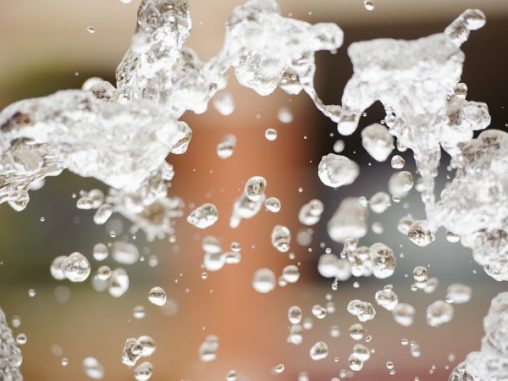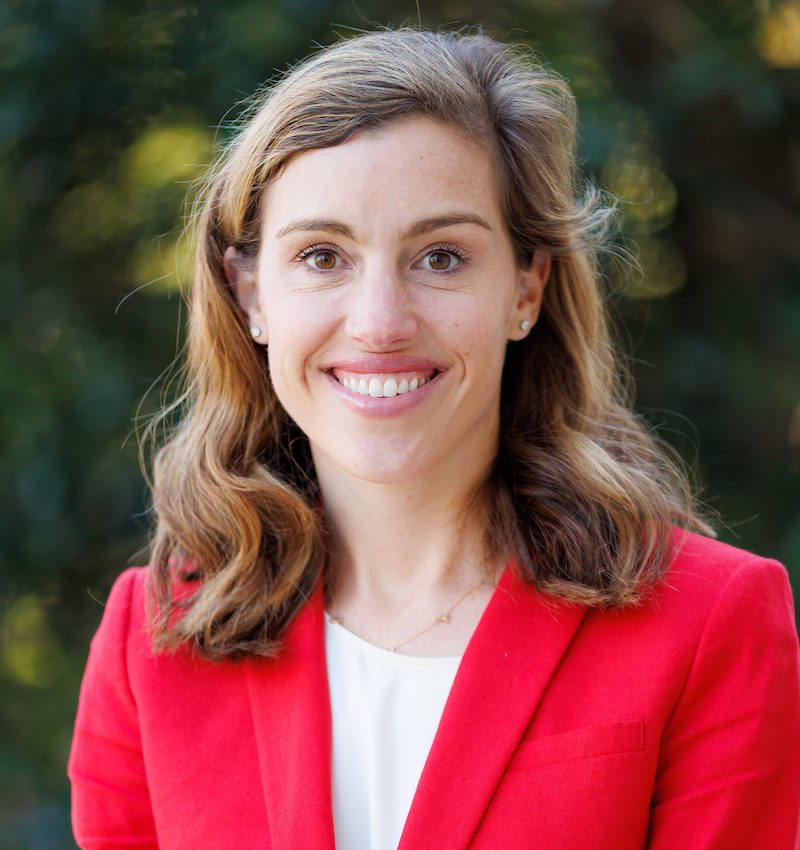Dr. Leigh Terry
Associate Professor, Associate Director of the Center for Water Quality Research
Contact
- 1108 Bevill
- phone (205) 348-1580
- fax (205) 348-0783
Research Areas
Education
- Ph.D., Environmental Engineering, University of Colorado, Boulder, 2017
- M.S., Civil and Environmental Engineering, University of Colorado, Boulder, 2013
- B.S., Civil Engineering, University of Alabama, 2012
Dr. Leigh Terry is an assistant professor in the civil, construction, and environmental engineering department at The University of Alabama.
Her current research areas focus on water quality and include biological filtration, disinfection by-product formation, organic matter characterization, trace constituents in drinking water sources such as pharmaceuticals and personal care products, life cycle assessment of sustainable drinking water treatment plants, environmentally-friendly deicing alternatives, storm water run-off, and STEM education for women and underrepresented minorities.
At UA, Terry teaches Introduction to Environmental Engineering, Environmental Engineering Microbiology, Biological Treatment Processes, and Analytical Methods in Environmental Engineering. She is an active member of the Alabama Water Institute, the Alabama Transportation Institute, and the Center for Water Quality Research.
Terry completed her bachelor’s degree in civil engineering at The University of Alabama and completed her master’s and doctorate in the department of environmental engineering at the University of Colorado, Boulder.
Affiliated Areas
Center for Water Quality Research, Civil, Construction and Environmental Engineering
Selected Publications
- Clayton, J. G.; Mejia, M. R.; Daqian, J.; Terry, L. G., 2024. Delayed Pipe Replacement Halves Environmental Impacts but Triples Water Loss. AWWA Water Science, 6(2), e1366. https://doi.org/10.1002/aws2.1366
- Terry, L., Peterson, E., & Summers, R. S.*, 2023. Organic Matter Biofiltration Performance Modeling: Influence of influent water quality, operating conditions and biomass. Water Research, 121006, https://doi.org/10.1016/j.watres.2023.121006.
- Vines, M., Boyd, J., Cochran, J., Terry, L.*, 2023. Magnetic Ion Exchange Resin for Reducing Disinfection Byproducts in Drinking Water: Pilot-Scale Study and Organic Matter Characterization. Journal of Water Process Engineering, vol 56. doi.org/10.1016/j.jwpe.2023.104445
- Vines, M., Terry, L.*, 2023. Removal of Haloacetic Acids via Adsorption and Biodegradation in a Bench-Scale Filtration System. Water, April 7; 15(8):144. https://doi.org/10.3390/w15081445
- Arekhi, M., Terry, L., Clement, T., 2023. Characterizing the relative efficiency of low-cost LED light sources for conducting laboratory studies to investigate polycyclic aromatic hydrocarbon photodegradation processes. Environmental Research. Nov 25:114951. doi.org/10.1016/j.envres.2022.114951
Awards and Honors
- Fulbright Specialist Award, Fulbright Scholar Program, 2021
- Engineering Council of Birmingham Educator of the Year, 2022
- College of Engineering Excellence in Undergraduate Education Award, 2022
- EPA Science to Achieve Results Fellowship
- Hazen and Sawyer American Water Works Association Scholarship
Dr. Terry's Impact

With EPA Funding, UA Students to Assess Well Water
A student-led team from The University of Alabama has received a federal award for its research and efforts to help private well owners in Alabama predict and identify the risk of water contamination after flooding.

UA Engineering Faculty Receives Fulbright Award
Dr. Leigh Terry received a Fulbright Specialist Award to exchange knowledge and establish partnerships through educational and training activities within environmental science.

Alabama Water Institute Names First Faculty Fellowship Recipients
The Alabama Water Institute selected three UA faculty members as the inaugural fellows in the AWI Faculty Fellowship Program.
